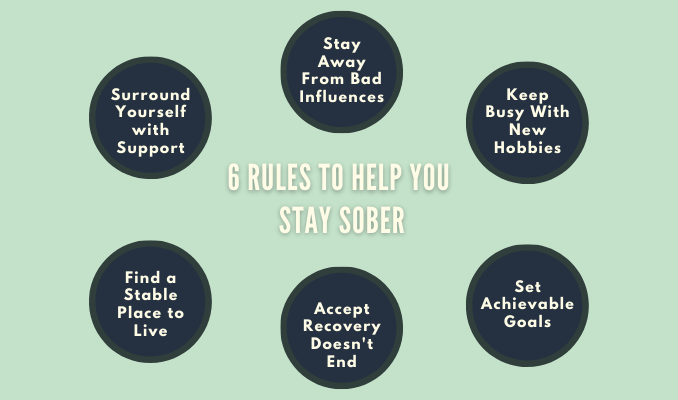Ensuring a sober and supportive home environment holds immense importance for those on the path to recovery from alcohol addiction. Whether you’re personally in the process of recovery or offering your assistance to a dear one, the creation of an environment that fosters sobriety and overall wellness remains paramount. Within this article, we will share valuable insights and practical advice on establishing a secure and alcohol-free living space.
- Clear Out the Alcohol: Your initial step in establishing a sober living environment involves eliminating all traces of alcohol from the premises. This encompasses clearing out liquor cabinets, disposing of bottles, and meticulously searching every corner where alcohol might be concealed. The objective is to remove any potential temptations that could be easily accessible.
- Communicate Openly: Cultivate an environment that values and promotes transparent and sincere communication. Engage in conversations with your household members or roommates about the significance of maintaining a sober home, openly expressing your needs and apprehensions. This forms the basis for mutual understanding and support.
- Seek Professional Help: If you or someone you care about is grappling with alcohol addiction, it is prudent to contemplate seeking guidance from a qualified professional. A counselor or therapist can offer valuable insights and effective strategies for upholding sobriety within the home setting.

Read more.. Guarding Your Newborn from Mosquito Bites: Tips for a Serene Night - Establish Sober Routines: Implement daily routines that don’t involve alcohol. This might include morning exercises, meditation, or setting aside time for hobbies and interests that promote a healthy lifestyle.
- Remove Triggers: Identify and remove triggers that might lead to alcohol cravings. This could involve distancing yourself from friends who encourage drinking or avoiding places associated with drinking.
- Create a Supportive Social Circle: Surround yourself with friends and family who support your journey to sobriety. Engage in sober activities and seek out support groups or recovery meetings to connect with like-minded individuals.
- Educate Yourself: Knowledge is power. Educate yourself about alcohol addiction, its effects, and relapse prevention strategies. Understanding the challenges you might face can help you stay on track.
- Practice Stress Management: Develop healthy stress-coping mechanisms such as exercise, deep breathing, mindfulness, or yoga. These practices can help you manage stress without turning to alcohol.
- Stock Up on Non-Alcoholic Alternatives:
Swap out alcoholic drinks for a diverse selection of non-alcoholic alternatives that you find appealing. Experiment with a range of alcohol-free beverages, such as sparkling water, herbal teas, or creative alcohol-free mocktails, so you’re well-prepared for social gatherings and events.
 Read more.. Progresses in Clinical Innovation: Developments Forming Medical Care Conveyance
Read more.. Progresses in Clinical Innovation: Developments Forming Medical Care Conveyance10. Create a Supportive Environment: Decorate your home with items that inspire positivity and serenity. Consider adding calming colors, inspirational quotes, or artwork that reflects your commitment to sobriety.
- Set Boundaries: Establish boundaries with friends and family regarding alcohol consumption when visiting your home. Make it clear that you appreciate their support in maintaining a sober environment.
- Plan Ahead for Tempting Situations: If you anticipate situations where alcohol might be present, have a plan in place. Identify a sober friend you can call for support or prepare an exit strategy to remove yourself from the situation.
- Regularly Check In: Periodically evaluate your progress and assess your home environment. Make adjustments as needed to ensure it remains a safe and supportive space for your recovery.
Conclusion:
Maintaining a sober home environment is an essential aspect of the recovery journey. By following these practical tips and fostering a supportive atmosphere, you can create a space that promotes sobriety and well-being. Remember that seeking professional guidance and building a strong support network are essential components of sustaining a sober lifestyle.




